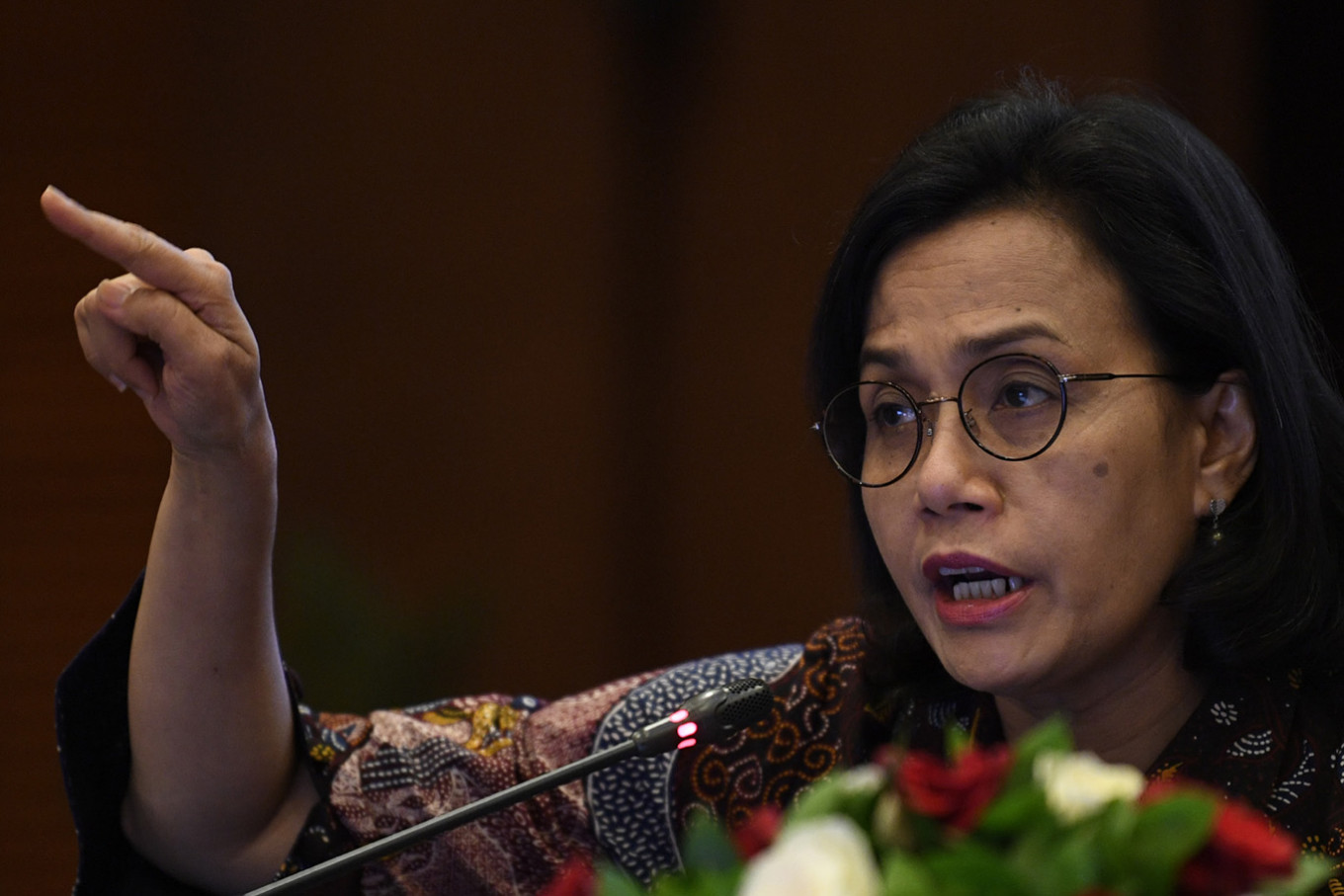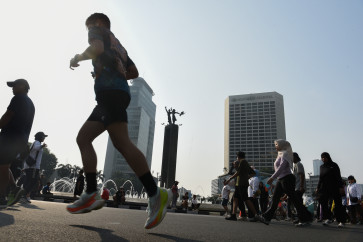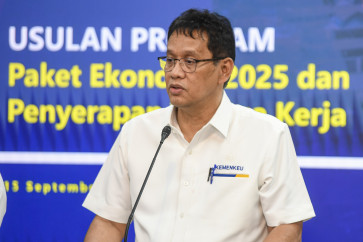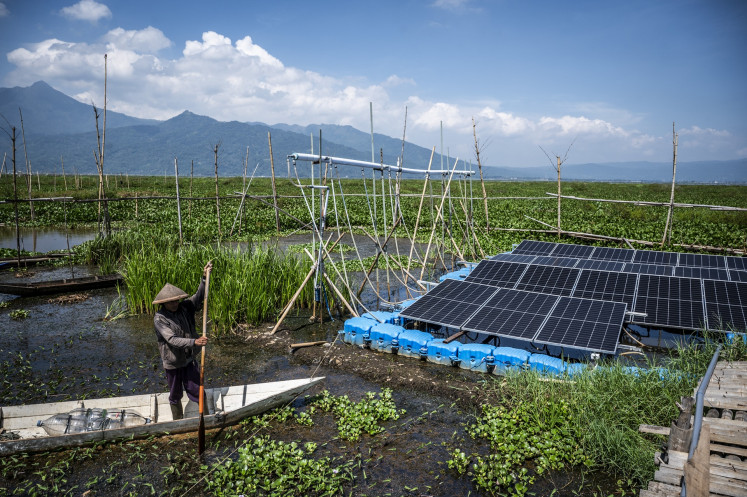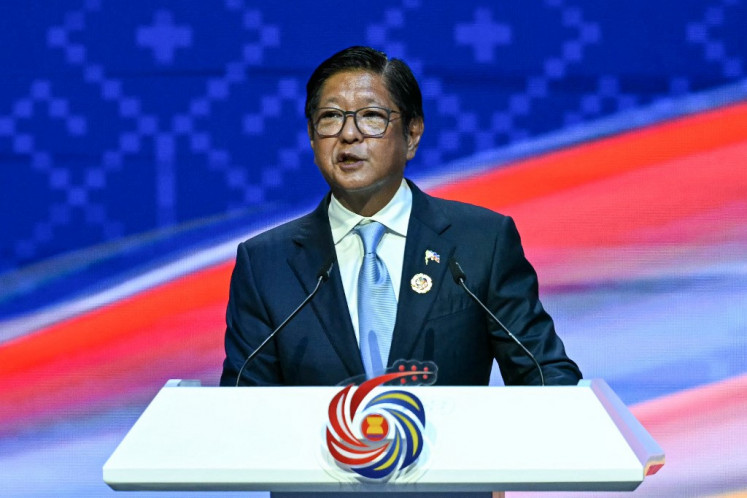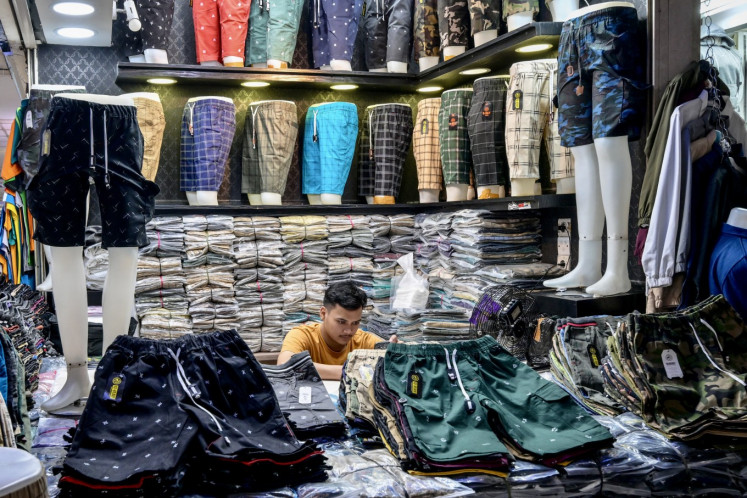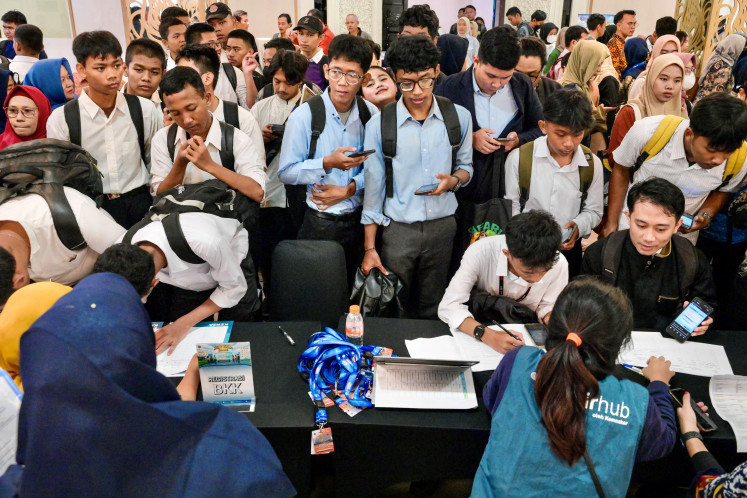Popular Reads
Top Results
Can't find what you're looking for?
View all search resultsPopular Reads
Top Results
Can't find what you're looking for?
View all search resultsPandemic looms over budget
Policymakers will continue to walk on a tight rope with physical distancing, testing, tracing and isolating as their main instruments to fight the virus.
Change text size
Gift Premium Articles
to Anyone
P
resident Joko “Jokowi” Widodo is aiming for full economic recovery at the 2014-2019 average growth rate of 5 percent, even though the Rp 2.74 quadrillion (US$185 billion) government spending plan for 2021 is virtually flat.
The 4.5-5.5 percent growth target range set in the 2021 budget proposal unveiled to the House of Representatives last week is predicated on a fiscal deficit of 5.5 percent, lower than the 6.34 percent estimated for this year.
But we think the macroeconomic assumptions used for the revenue and expenditure targets are shaky, taking into account the extremely high uncertainty about when the pandemic will be over, the deep global economic recession and the poor budget execution capacity of government institutions.
The President himself has often expressed his frustration over the utterly slow budget disbursement, though the snail-paced budget implementation in the first half is understandable, in view of the many budget revisions between April and June in response to the pandemic-induced public health and economic crisis.
It is needless to remind that efficient public-sector expenditure, though only accounting for about 16 percent of gross domestic product (GDP), is a key contributor to boosting economic development through direct spending and creating the right environment to stimulate private investment.
The two key factors that determine the pace of Indonesian economic growth next year are the duration of the pandemic and the enactment of the omnibus bill on job creation, which would amend 73 laws and thousands of regulations to simplify business licensing and strengthen legal certainty to woo foreign investment.
The most optimistic growth estimate for Indonesia this year is 2 percent, assuming the economy fully reopens in the second half. But this is unlikely. Most epidemiologists have estimated that a vaccine for COVID-19 may not be fully available in the market until the first half of next year. Hence the economy will most likely be flat or even contract for the whole year after suffering negative growth of 5.3 percent in the second quarter.
Since virus transmission is still evolving within Indonesia and around the world, the precise magnitude and timing of the recovery will largely depend on the extent, severity and duration of the pandemic.
While a vaccine for the virus is not adequately available in the market, physical interaction is considered dangerous due to high risks of infection, and consequently social distancing and other containment measures will be required until next year. Policymakers will continue to walk on a tight rope with physical distancing, testing, tracing and isolating as their main instruments to fight the virus.
But even if containment measures are significantly eased in the first half, the pace of new domestic and foreign investment, the second-largest growth driver after private spending, will remain weak if the House fails to approve the omnibus bill on job creation and the government does not issue hundreds of regulations necessary to implement the new law within the next few months.

